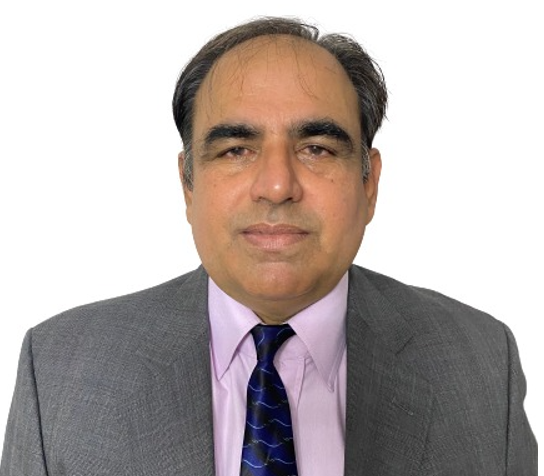-Dr. Rahul Kumar, PhD, Senior Diplomacy and Security Expert-
(Asian Independent, UK)- India has been sending wheat and life –saving medicines to the people of Afghanistan through Attari-wagah integrated post since the Taliban leaders took over the reins of government in Afghanistan. The government of Pakistan under former Prime Minister Imran Khan showed a goodwill gesture and the current regime under Prime Minister Shehbaz Sharif extended permission for two months for the smooth and safe transportation of India`s relief material to the people of Afghanistan. How long would the Indian government send relief material to Afghanistan to safeguard its interests in the region? It is true that China has increased its political and economic grip in Afghanistan since the disgraceful departure of Americans from Afghanistan. The Taliban top leaders seem to be closer to China than India. If there is a full-fledged war between India and Pakistan which is quite possible, Will the Taliban leaders side with Pakistan or will they side with India? Can China influence Taliban leaders to support Pakistan against India? Dr. S Jai Shankar and his team in the Indian External Affairs Ministry must exert sincere efforts to find out answers to these complex questions before it becomes too late for them to defend its previous huge investment in Afghanistan.
Hopefully, the Indian diplomats must have got a loud and clear message when Taliban political chief Mullah Abdul Ghani Baradar and Chinese State Councillor and Foreign Minister Wang Yi met in July 2020 in Tianjin. China was the first country to extend a diplomatic approach with the Taliban. India got delayed in building up relations with the top leadership of the Taliban. The indecisive and lethargic Indian diplomats gave an open hand to the Chinese Government to strengthen ties with the Taliban leaders. It seems Indian diplomats are satisfied only by sending a small amount of wheat and life-saving medicines but the larger picture has been ignored. For this lapse, Dr. S. Jai Shankar should be held responsible.
India has lost political grip over Afghanistan. It is a known fact that Afghanistan has rare earth elements such as lanthanum, cerium, neodymium, and veins of aluminum, gold, silver, zinc, mercury and lithium. Shamaila Khan, director of emerging market debt at Alliance Bernstein said, “China is likely to exploit the treasure hidden under earth to the tune of $3 trillion.” H.E. Wang Yu, the Chinese Ambassador to Afghanistan, highlights that China did provide the war-torn country millions of dollars in aid for building hospitals, such as Jamhuriat Hospital, a solar power station in Bamyan Province and more. (Indian Express, September2, 2021). Nimble diplomacy by China in Afghanistan is going to reap political and economic benefits for the country whereas inexperienced and irresolute Indian diplomats simply remain smug by making empty statements and did not execute foreign policies in a coordinated and meaningful manner. It is unfortunate that the Indian media remains silent and does not dare to expose political and diplomatic lapses in geo-political spaces for their vested interests. Their selfish behavior harms the national interests of India.
In the region, for India Iran is as important as to maintain friendly relations with the Taliban leaders but under the pressure of the United States of America and western countries, India could not re-build strong relations with Iran leadership. There are reports that Iran’s special representative on Afghanistan, Mohammad Ebrahim Taherian, has regularly interacted with the Taliban’s political leaders, as well as other Afghan political leaders, including Salahuddin Rabbani, the head of Afghanistan’s Jamiat-e Islami, and Abdul Rasul Sayyaf, the chief of the Islamic Dawah Organization of Afghanistan.(Vinay Kaura, MEI, June 23,2020). India was importing oil from Iran that too with Indian rupees and a credit line was also offered by Iran to India but under the threat of economic sanctions of the United States of America, India stopped importing oil from Iran. Iranian ambassador to India Ali Chegeni has offered to relaunch the rupee-rial trade mechanism for the export of oil & gas to India. He added that bilateral trade has the potential to cross $30 billion if the two sides can revive the rupee-rial trade. The people of India are bearing the brunt of costly oil but the Modi government prefers to import oil from the USA and Russia in foreign currency.
The relationship between India and Pakistan is known to everyone. Pakistan over the years gained power and status in Afghanistan. At the international border, there are serious ceasefire violations from both sides in the Kashmir region. Comparatively, India`s loss in terms of human lives is greater than Pakistan. According to Indian Ministry of Home Affairs, between May 2014 and August 2019, 177 civilians died in the terrorist attacks. There seems to be no end to it. Insurgency is on the rise in Jammu & Kashmir despite repeated assurances by New Delhi.
The security situation is volatile in the region. India is at higher risk because of unfriendly relations with Iran, Pakistan, Afghanistan and China. India has been slow to fully recognize, gauge and react to Chain’s new security diplomacy. The burgeoning political and economic grip of economically and militarily powerful China in the region should be a matter of concern and anxiety for New Delhi.
Dr. Rahul Kumar is a Ph.D. in Sociology from Jawaharlal Nehru University, Delhi (India), is an independent researcher. His area of interest encompasses foreign policy analysis for international relations. The views expressed in this article are personal.








